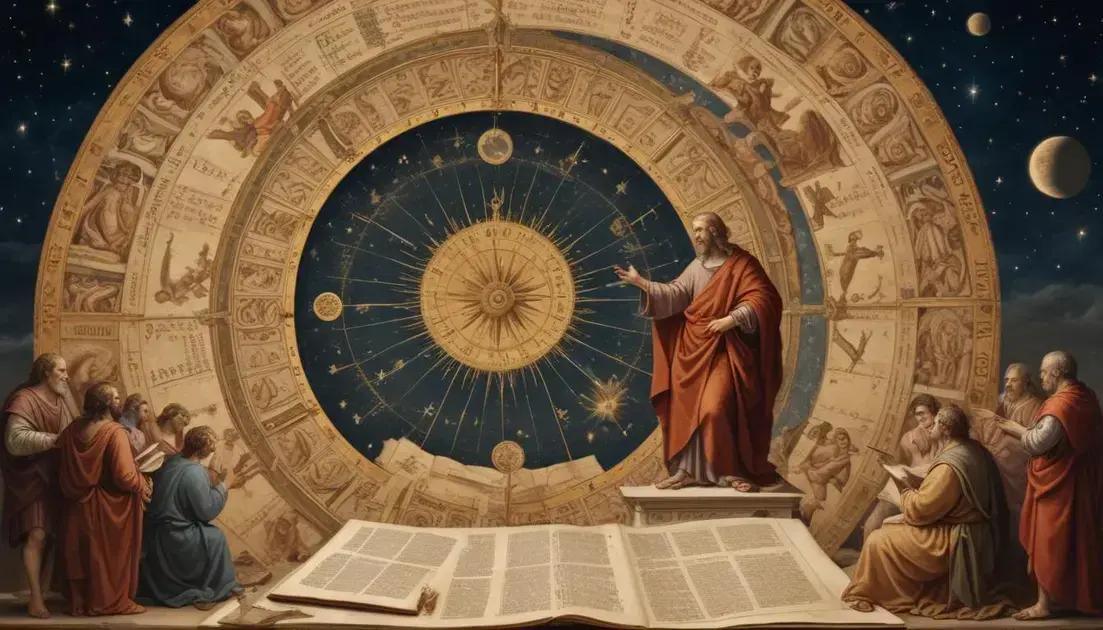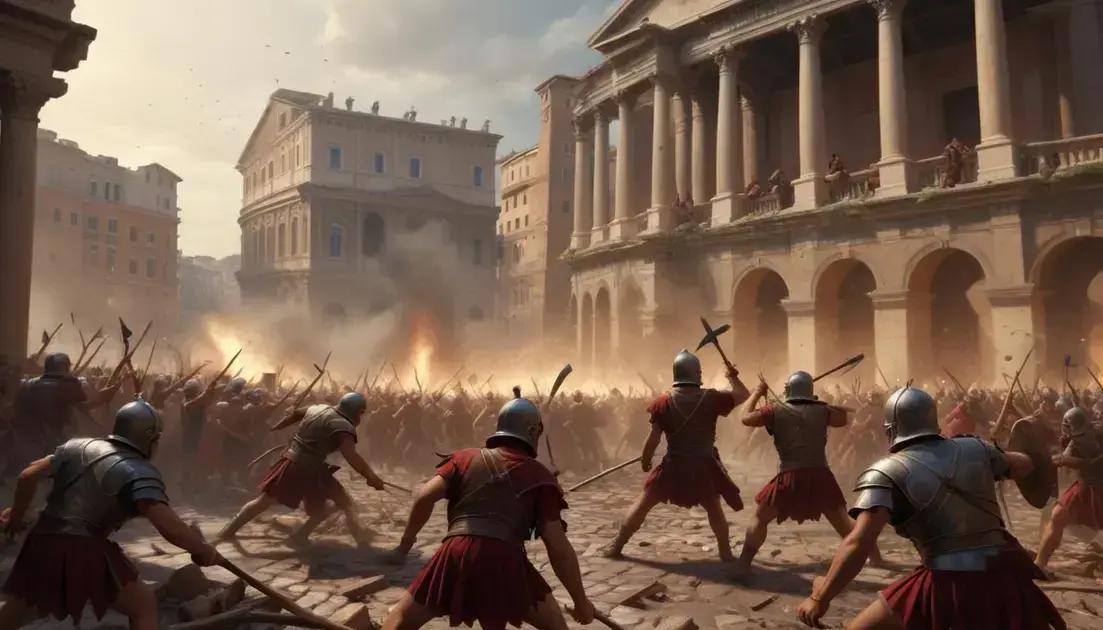
Anno Domini: 2000 Years of Christian Time Counting
The concept of Anno Domini, introduced by Dionysius Exiguus in the 6th century, revolutionized how we measure time. By establishing a calendar centered around the birth of Jesus Christ, he created a system that allows us to understand history in a more organized way. This system, which differentiates years as BC (before Christ) and AD (Anno Domini), has had a lasting impact on the Christian calendar and modern timekeeping. Today, it’s essential for scheduling events and coordinating across global cultures, highlighting its relevance in both historical and contemporary contexts.
Time Counting has revolutionized how we understand and measure our history, and it all began with a brilliant mind known as Dionysius Exiguus. Curious about how this has shaped our lives today?
Introduction to Anno Domini
When we talk about Anno Domini, it means “in the year of our Lord” in Latin. This term is used to mark years after the birth of Jesus Christ. It’s a way to keep track of time based on a significant event in history.
The idea was proposed by a monk named Dionysius Exiguus in the year 525 AD. He created a new system for counting years, which was quite different from what people used before. Before him, people often used the reigns of kings or other events to mark years.
Dionysius wanted to focus on the birth of Christ because he saw it as a pivotal moment for humanity. Now, we count years from this point forward as AD, and from the creation of the world as BC, or “before Christ”.
This system has become the most widely used calendar in the world today. Western culture often relies on this method to mark historical events, celebrate holidays, and organize our lives.
Knowing about Anno Domini helps us understand how people throughout history have measured time and how it influences our lives. It raises questions about how we view the past and the future alike.
The Role of Dionysius Exiguus
Dionysius Exiguus was an important figure in history. He lived in the 6th century and was a monk. His main contribution was creating a new way to measure years.
Before Dionysius, people used different systems. They often counted the years based on the reign of kings or significant events. This made keeping track of time tricky. Dionysius wanted a clearer way that would center around the birth of Jesus Christ.
His idea was simple yet revolutionary. He decided to mark years as either BC, which stands for “before Christ,” or AD, meaning “Anno Domini” or “in the year of our Lord.” This way, every year after Christ’s birth would be counted forward.
He also calculated the birth year of Jesus based on historical texts. This was not easy, as records from that time were not perfect. His work laid the foundation for our modern calendar system.
Today, we use the timeline he created to date events, celebrate holidays, and plan our lives. Understanding the role of Dionysius Exiguus helps us appreciate how we measure time.
Measuring Time in History
Measuring time in history is a fascinating subject. People have always wanted to know when events happened. This helps us understand changes over time.
In ancient times, different cultures had their ways of marking years. For example, the Romans counted years based on the founding of their city. They used specific events and reigns of kings to keep track.
Timekeeping changed with the rise of Christianity. Dionysius Exiguus introduced the idea of measuring years from the birth of Jesus Christ. This new method created a way to connect history with faith.
Today, we have standardized methods like the Gregorian calendar. This calendar is widely used around the world. It helps us know what year it is, and plan events and activities.
Understanding how time has been measured gives us insight into cultural shifts. It shows us how communities evolve and how they view their past.
Different ways to measure time tell stories about how societies functioned. For instance, calendars can reveal harvest times, festivals, and important events in various cultures.
Impact on Christian Calendar
The impact of Dionysius Exiguus on the Christian calendar is significant. His work changed how people keep track of time. By focusing on the birth of Jesus, he created a way to mark years that many still use today.
Before Dionysius, people measured time in various ways. Some used the reigns of kings or important city events. This made it hard to agree on dates, especially across different regions.
With Dionysius’s system, we now see the years as BC or AD. This made planning festivals and church events much easier. For example, Christmas celebrates the birth of Jesus, which is an important date.
His system helped unify the way Christians think about history and the passage of time. Religious leaders and communities started using this calendar to coordinate their practices.
The prompt for this calendar shaped many Western cultures and even influenced others worldwide. Today, the Christian calendar remains a central part of how we measure time, with many still observing its dates and celebrations.
Modern Implications of Time Counting
The modern implications of time counting are far-reaching. Our daily lives depend on a clear system for tracking time. The calendar created by Dionysius Exiguus is still in use today, shaping how we plan our year.
In today’s world, time counting helps us organize events, from holidays to business meetings. It allows us to coordinate schedules across different cultures and time zones. Knowing the date helps us celebrate cultural and religious traditions effectively.
Many industries rely on precise timekeeping. For example, the tech industry needs accurate timestamps for software development and project management. Health care also needs it for scheduling appointments and tracking patient history.
As we move into a more globalized world, time counting remains vital. Different regions may have their calendars, but the Gregorian calendar is widely recognized. This means that everyone can communicate about time effectively.
Understanding the implications of time counting helps us appreciate how we manage our lives and the world around us. It influences our daily routines, planning, and even international relations.
Conclusion
In conclusion, understanding the evolution of time counting is important for grasping how we organize our lives today. The work of Dionysius Exiguus has shaped not only our calendars but also our cultural celebrations and daily routines. By measuring time more clearly, we can connect with others and participate in events worldwide.
The modern implications of this system are everywhere. From scheduling meetings to planning holidays, accurate timekeeping plays a vital role in our lives. As we continue to navigate a globalized world, having a shared way to count time brings us closer.
Ultimately, appreciating the history and significance of time counting helps us understand its impact on society. It influences how we celebrate, how we work, and even how we plan for the future. Let’s continue to recognize the value of time in our daily lives and use it wisely.


